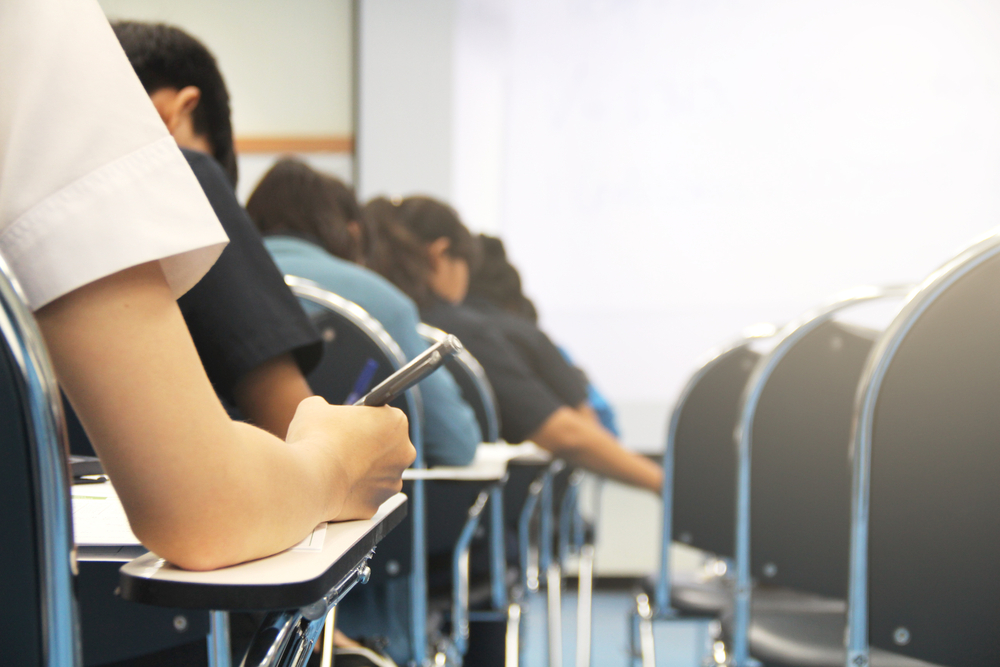Higher secondary examinees who will get caught sending images of question papers through cellphones from test venues will have their registrations cancelled and will never be allowed to write the school-leaving exams.
The same fate awaits those who will be caught receiving answers through phones.
“The registration of such candidates will be cancelled and they will never be allowed to register again,” Mahua Das, the president of the West Bengal Council of Higher Secondary Education, which conducts the school-leaving exams, said on Wednesday.
A candidate caught with a cellphone in the exam hall but is not found to have circulated images of the question paper or received answers through the device will only have the day’s paper cancelled.
He or she will be allowed to write the next day’s paper, Das said.
The higher secondary exams start on March 12.
The council had last year introduced the practice of cancelling the registration of students caught with mobile phones inside exam venues. Till last year, the candidates whose registration was cancelled would be barred from writing the remaining papers but they could apply for re-registration the next year.
Despite the announcement that registration would be cancelled if a student was found with a phone in the test venue, many examinees were caught with phones last year.
Some were allowed to re-register this year.
“This time we have divided the punishment for committing the offence of carrying mobile phones to the exam venues into two categories. A student’s registration will be cancelled permanently if he or she is found circulating questions or answers using the phone,” Das told Metro.
“If a mobile seized from an examinee shows that the device had not been used for circulating any examination-related information, the student will be barred from writing the day’s paper. He or she will be allowed to sit for the remaining papers.”
The council on Wednesday issued guidelines for conducting the exams. The schools where the exams will be held have been asked to “check” each and every candidate at the main gate to ensure no one enters the premises with a mobile phone. The examinees, however, cannot be subjected to “physical checking”.
Each exam hall must have at least three invigilators, the guidelines state. One will be the chief invigilator, who will be in charge of the exam in that hall. The papers will be distributed only after the invigilators confirm that no examinee has a phone on him or her.











